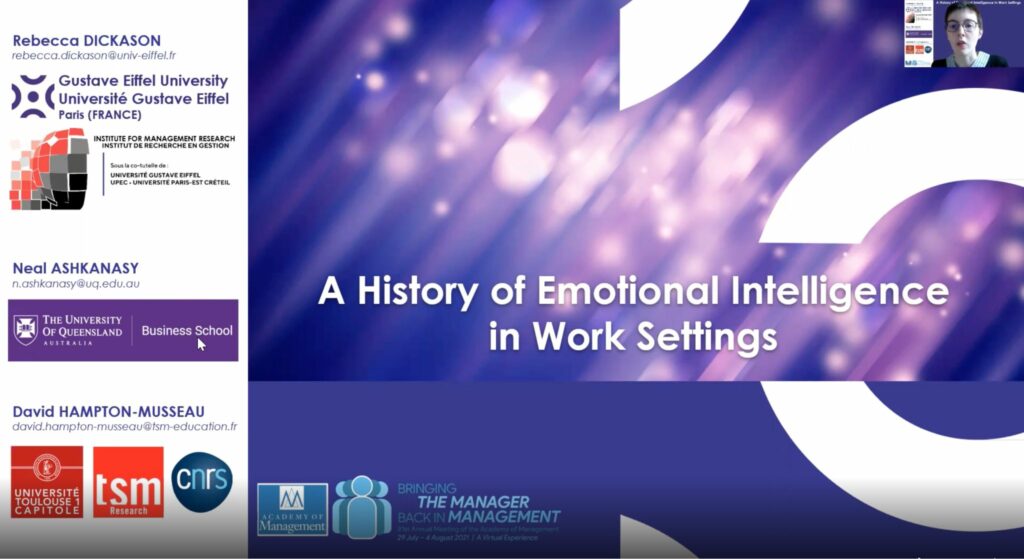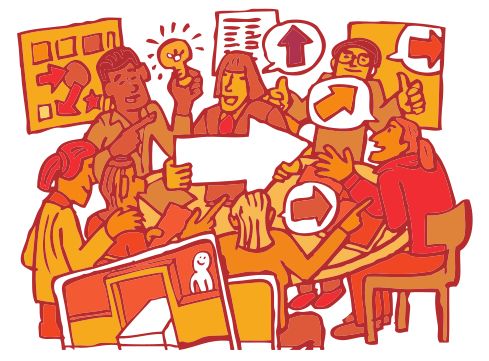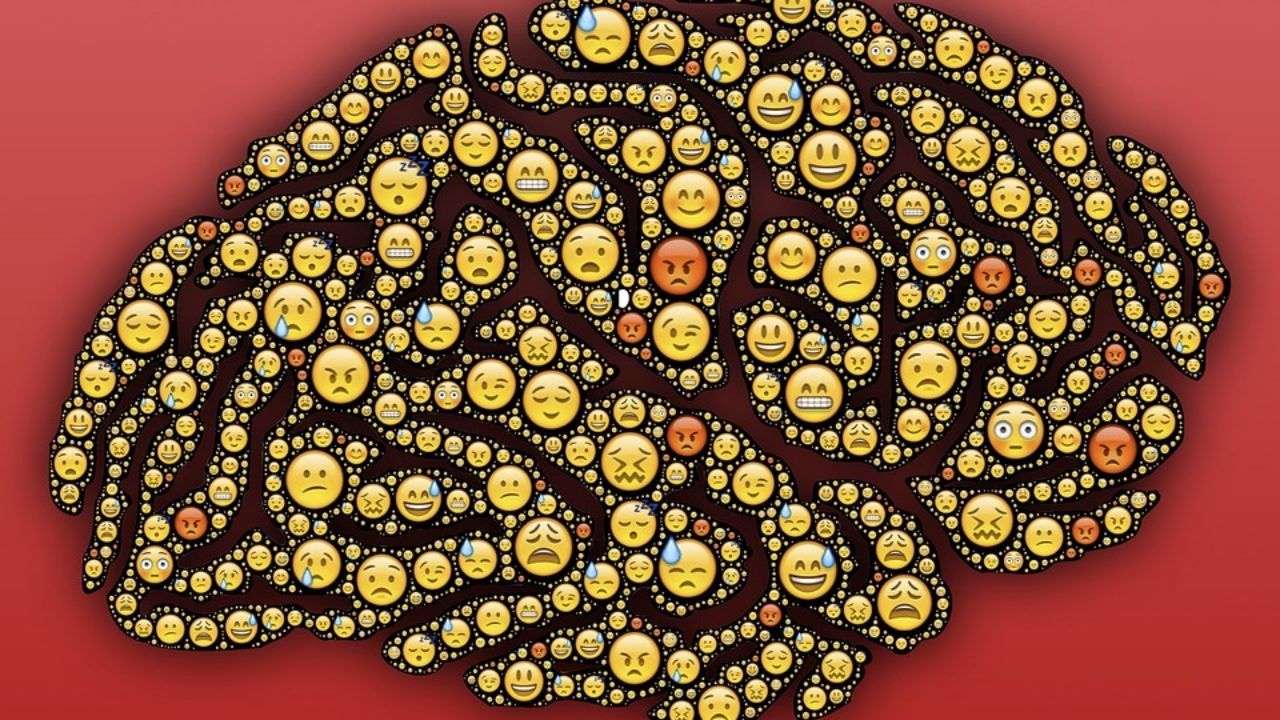🌀 Emotional Intelligence (EI) is a set of abilities that can help go through intensely emotional moments or in an emotionally charged space limited by life experiences.
💡 EI includes coping with stress, maintaining motivation over time, establishing and maintaining close relationships, or adapting to rapidly changing situations with changing social demands (Joseph and Newman 2010; Mayer et al. 2016).
✅ Through a historical review, my co-authors and I (Rebecca Dickason, Neal M. Ashkanasy & David HAMPTON-MUSSEAU, 2021) explore the origins of EI, the dual theoretical context linked to research on emotion and general intelligence, the first self-assessment instruments, the emergence of the EI ability-model, and the identification of three distinct “streams” of EI research.
⚙️ We, thus, draw a roadmap for the future and open up new avenues of research, essential with the difficult times we are all unequally facing.
✴️ We are so grateful to present our work at the Academy of Management 2021 international conference for an asynchronous session, starting this Friday, July 30, 2021.
#AOM2021
https://2021.aom.org/meetings/virtual/F2vM596dBBxQ2gzTX
Université Toulouse 1 Capitole
Toulouse School of Management
CNRS – Centre national de la recherche scientifique
#intelligenceémotionnelle #history #neurosciences #AOM2021
🧠 The avenues we propose come partly from recent neuroscience research and researchers adopting a multidisciplinary vision, supporting more transversality from the so-called “exact” sciences towards the human and social sciences and vice versa.
Those academic collaborations augur a better understanding of our affects, in particular, through different ontological and epistemological approaches.
✅ Emotional granularity (ability to differentiate the specificity of one’s emotions beyond simple “pleasure-displeasure,” Barrett, 2018), for example, or effective emotional regulation, are therefore an integral part of EI.






COMMENTAIRES :
–> Christophe Tricart
–> Guillaume Rosquin